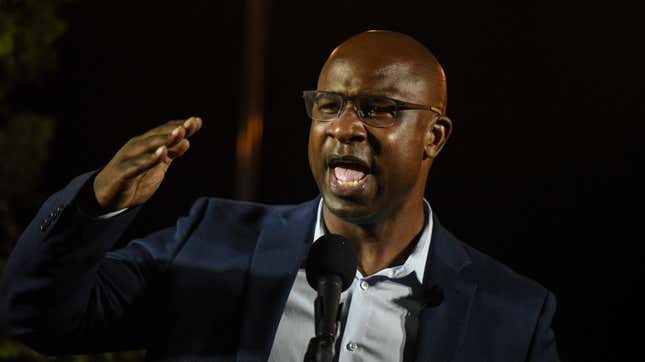
Tuesday’s primaries have reshaped the Green New Deal landscape. Much of the focus has been on the top tier Congressional races featuring big names like AOC cruising to victory and major upsets like newcomer Jamaal Bowman blowing the hawkish House Foreign Affairs Committee chair Eliot Engel out of the water in New York’s 16th district, all but guaranteeing him a spot in the House next year.
But down ballot primaries saw candidates win running on platforms of radical and much needed climate policy. Though state representatives don’t have the massive powers or spotlight of those on Capitol Hill, statehouse efforts are vital because climate policy can and should take place at every level of government. As the Trump administration has issued blow after blow to environmental protections, many state governments have stepped up to introduce policies to move to decarbonization. The more climate champions the nation has in office, the easier it will be to pass those proposals.
Running on progressive climate policy is a good way for Democrats to win elections. A new Pew Research Center poll shows the vast majority of Americans support climate action. The down ballot wins are sorely needed: Under Obama’s presidency, Republicans won control of many state legislatures and in many cases, have enacted legislation to prop up the fossil fuel industry and curb renewables.
Among the Green New Deal candidates who won on Tuesday in New York are Julia Salazar who won her primary and will likely hold onto her state senate seat. Jabari Brisport also beat out a slew of self-styled progressive candidates and is likely headed to the state’s capital of Albany.
These candidates are mostly, young, of-color and working class, with resumes heavier on community organizing and public service than government or the private sector. They also came with the backing of scrappy, unapologetically progressive groups like the Sunrise Movement and the Democratic Socialists of America. And none of them accept fossil fuel donations. In many ways, they mirror the new guard of the climate movement both representationally and in terms of their end goal of not just reducing carbon emissions but doing so in a way that is just and leaves nobody behind.
But though they have a lot in common, their platforms’ differences are also instructive. Since the Green New Deal isn’t a single policy but a broad set of principles and goals, under its umbrella, candidates can craft their agendas to fit local needs.
Charles Booker—who is a tight race for the chance to take on Senate Majority Leader Mitch McConnell this fall—made ending the coal industry and supporting its workers a major priority in his campaign. It makes sense, as Kentucky is the fifth-largest coal producer in the U.S., and the industry is a powerful force in state politics. Meanwhile in New York, Brisport and Salazar put forth plans to bring the the investor-owned utility ConEd under public ownership and boost energy equity, reflecting anger after the company cut power to low-income neighborhoods of color during a heat wave last year and has continually raised the price of electricity.
That shows the strength of the Green New Deal approach. While critics have dismissed it as vague, the reality is that there’s no one-size-fits-all approach for addressing climate change and the attendant social issues. Carbon pollution and environmental injustice are embedded in every part of life in the U.S. Combatting all of that requires policies to transform transportation, energy, food, and more. That can’t all come from Capitol Hill.
Yes, we need a national strategy to reduce emissions in a fair and equitable way. But states will play a crucial role in tailoring the process and filling in gaps where federal policy can’t or gets tied up in courts.
Primary challengers with transformative climate agendas are still facing an uphill battle and opposition from powerful Democratic party leaders and fossil fuel interests. But if Tuesday’s wins are any indication, the climate movement is learning how to overcome those odds.